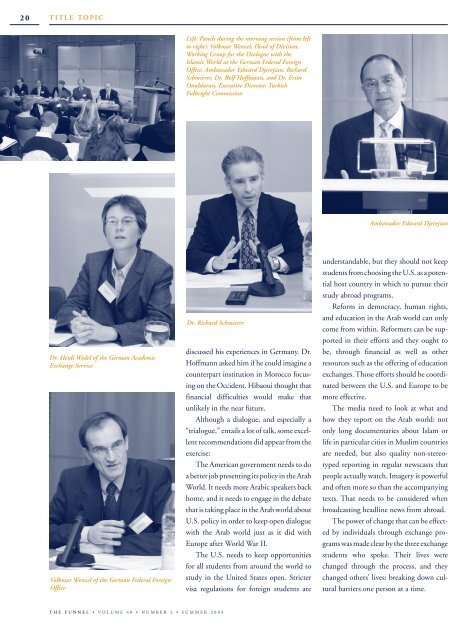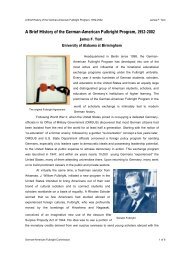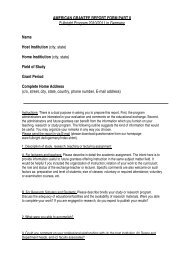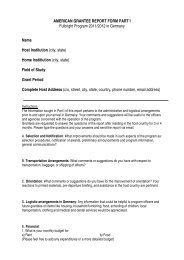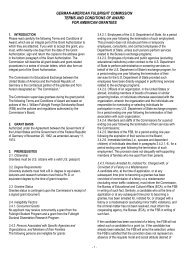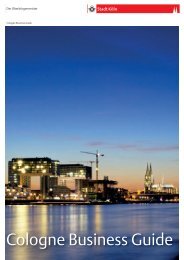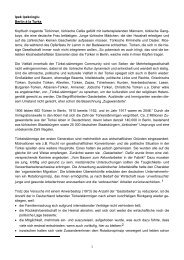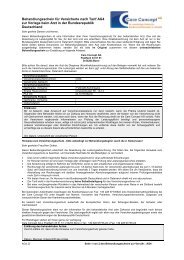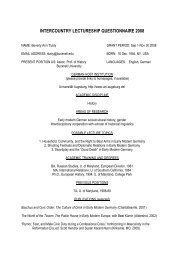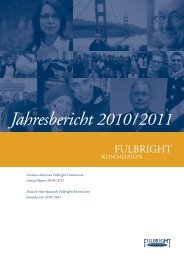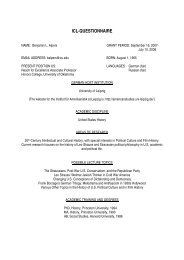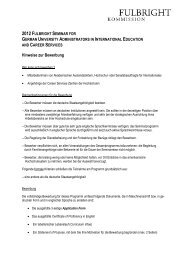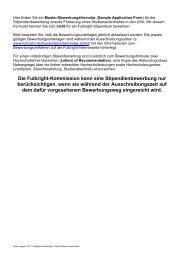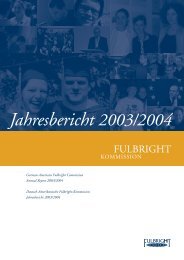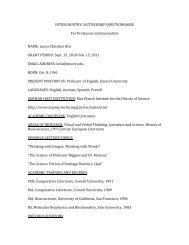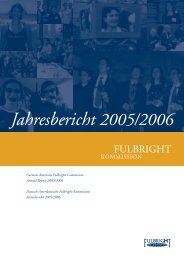Funnel 40/2, Inhalt - Fulbright-Kommission
Funnel 40/2, Inhalt - Fulbright-Kommission
Funnel 40/2, Inhalt - Fulbright-Kommission
You also want an ePaper? Increase the reach of your titles
YUMPU automatically turns print PDFs into web optimized ePapers that Google loves.
20<br />
TITLE TOPIC<br />
Dr. Heidi Wedel of the German Academic<br />
Exchange Service<br />
Volkmar Wenzel of the German Federal Foreign<br />
Office<br />
THE FUNNEL • VOLUME <strong>40</strong> • NUMBER 2 • SUMMER 2004<br />
Left: Panels during the morning session (from left<br />
to right): Volkmar Wenzel, Head of Division,<br />
Working Group for the Dialogue with the<br />
Islamic World at the German Federal Foreign<br />
Office, Ambassador Edward Djerejian, Richard<br />
Schmierer, Dr. Rolf Hoffmann, and Dr. Ersin<br />
Onulduran, Executive Director, Turkish<br />
<strong>Fulbright</strong> Commission<br />
Dr. Richard Schmierer<br />
discussed his experiences in Germany. Dr.<br />
Hoffmann asked him if he could imagine a<br />
counterpart institution in Morocco focusing<br />
on the Occident. Hibaoui thought that<br />
financial difficulties would make that<br />
unlikely in the near future.<br />
Although a dialogue, and especially a<br />
“trialogue,” entails a lot of talk, some excellent<br />
recommendations did appear from the<br />
exercise:<br />
The American government needs to do<br />
a better job presenting its policy in the Arab<br />
World. It needs more Arabic speakers back<br />
home, and it needs to engage in the debate<br />
that is taking place in the Arab world about<br />
U.S. policy in order to keep open dialogue<br />
with the Arab world just as it did with<br />
Europe after World War II.<br />
The U.S. needs to keep opportunities<br />
for all students from around the world to<br />
study in the United States open. Stricter<br />
visa regulations for foreign students are<br />
Ambassador Edward Djerejian<br />
understandable, but they should not keep<br />
students from choosing the U.S. as a potential<br />
host country in which to pursue their<br />
study abroad programs.<br />
Reform in democracy, human rights,<br />
and education in the Arab world can only<br />
come from within. Reformers can be supported<br />
in their efforts and they ought to<br />
be, through financial as well as other<br />
resources such as the offering of education<br />
exchanges. Those efforts should be coordinated<br />
between the U.S. and Europe to be<br />
more effective.<br />
The media need to look at what and<br />
how they report on the Arab world: not<br />
only long documentaries about Islam or<br />
life in particular cities in Muslim countries<br />
are needed, but also quality non-stereotyped<br />
reporting in regular newscasts that<br />
people actually watch. Imagery is powerful<br />
and often more so than the accompanying<br />
texts. That needs to be considered when<br />
broadcasting headline news from abroad.<br />
The power of change that can be effected<br />
by individuals through exchange programs<br />
was made clear by the three exchange<br />
students who spoke. Their lives were<br />
changed through the process, and they<br />
changed others’ lives: breaking down cultural<br />
barriers one person at a time.


